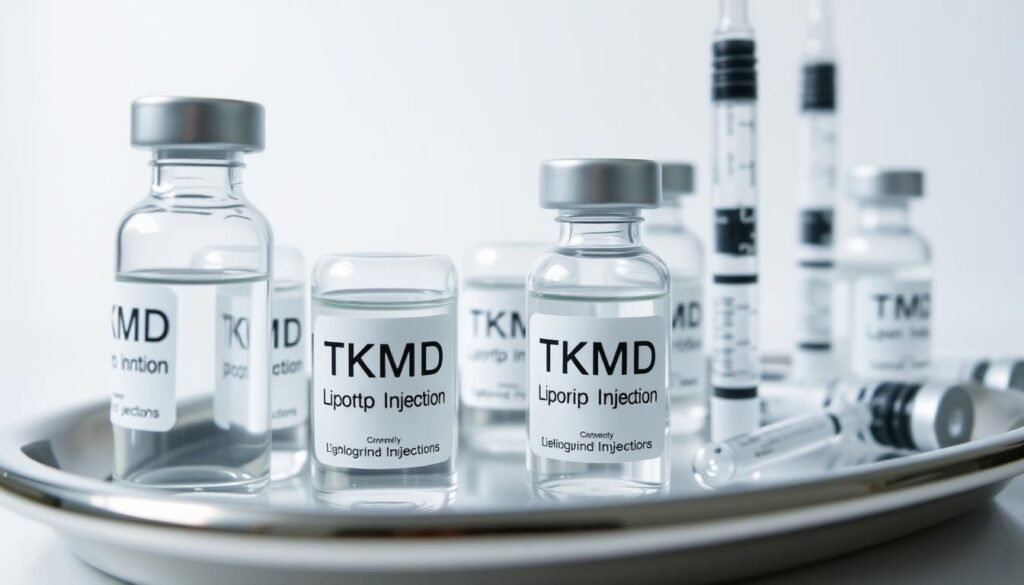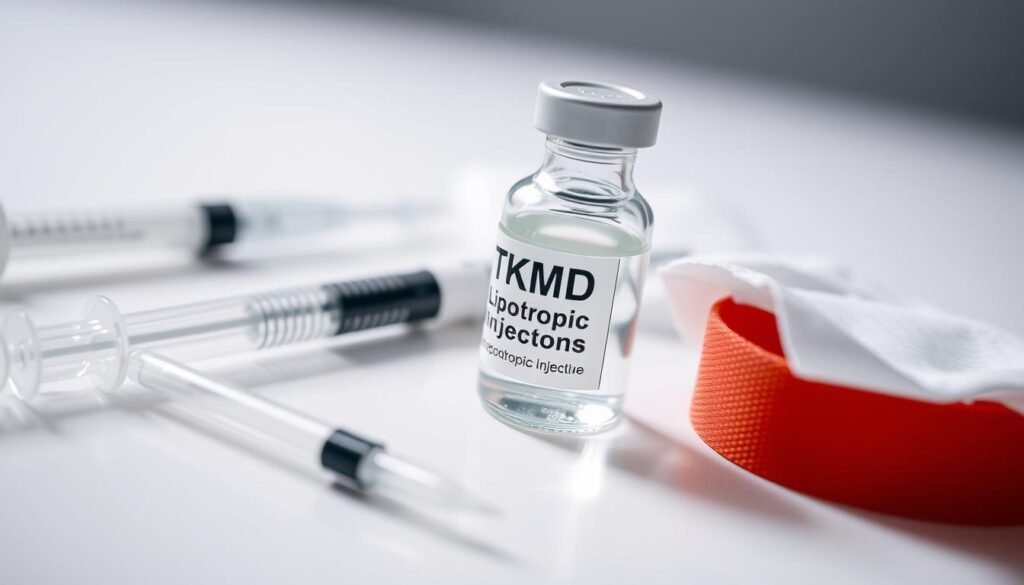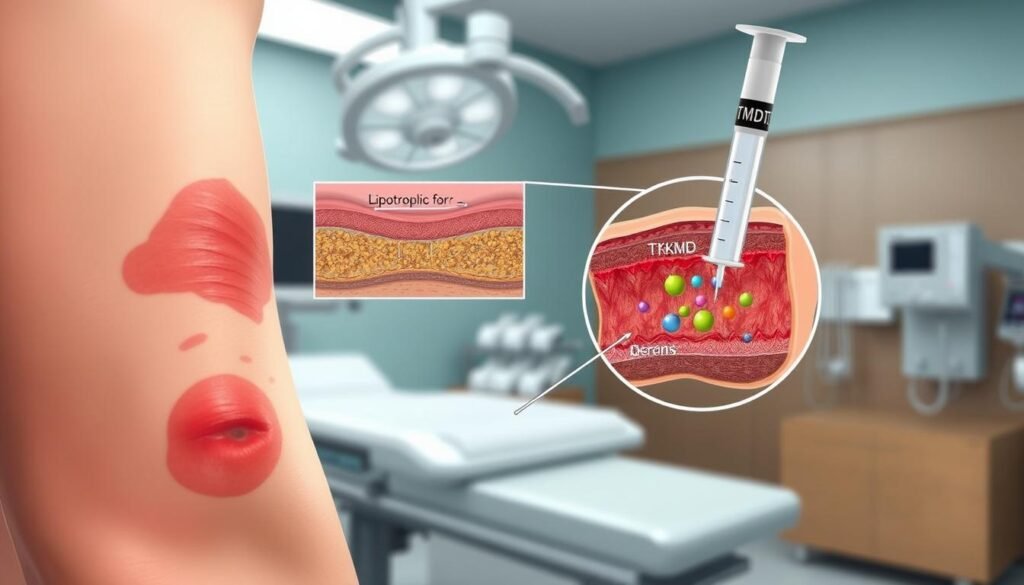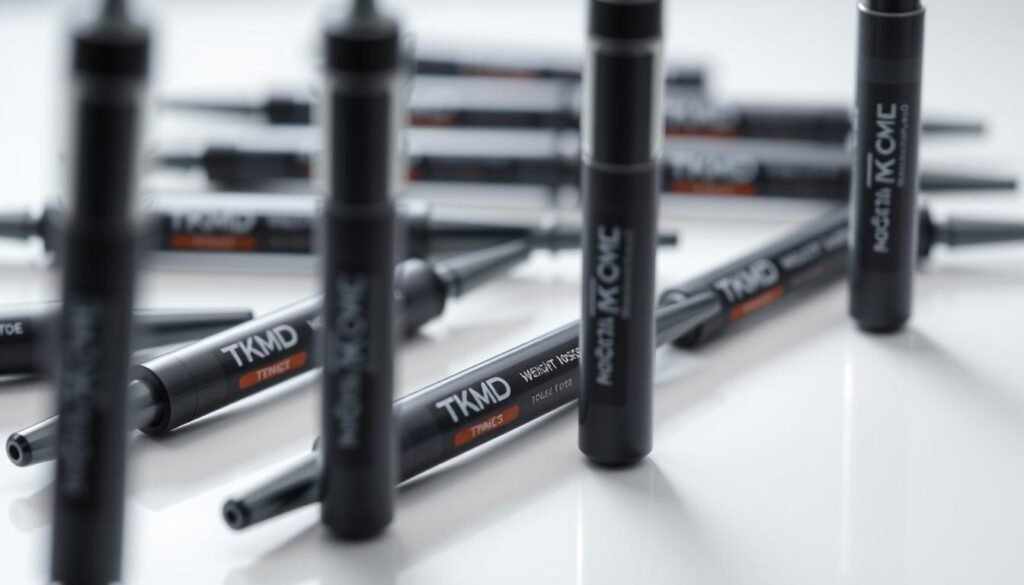The quest for effective weight loss solutions has led to a surge in popularity of lipotropic injections, touted to aid in shedding unwanted weight. These injections typically contain a mix of vitamins, minerals, and amino acids that are believed to enhance metabolism and support weight reduction efforts.
As the prevalence of obesity continues to rise, the interest in injectable weight loss treatments has grown, with many seeking alternatives to traditional diet and exercise. Lipotropic injections are often distinguished from newer weight loss medications like Wegovy and Zepbound, raising questions about their efficacy and safety. For more information on related cosmetic treatments, visit Cosmetic Enhancements.
Key Takeaways
- Lipotropic injections are a weight loss method that has gained popularity.
- These injections contain a combination of vitamins, minerals, and amino acids.
- Their effectiveness and safety for weight loss are not conclusively proven.
- They differ from newer weight loss medications.
- Understanding the ingredients and administration is crucial.
- Alternatives to lipotropic injections should be considered.
Understanding Fat Injections for Weight Loss
Lipotropic injections are often touted as a solution forweight loss, but what’s the science behind them? These injections are designed to aid inlossefforts by potentially enhancing thebody‘s natural fat-burning processes.
What Are Lipotropic Injections?
Lipotropic injections contain a combination of nutrients, including Vitamin B-12 and methionine, which are believed to play a role in fat metabolism. Vitamin B-12 is important for energy production, while methionine is an amino acid that helps the body process fats.
| Nutrient | Role in Weight Loss | Effect on Metabolism |
|---|---|---|
| Vitamin B-12 | Enhances energy levels | Supports fat metabolism |
| Methionine | Aids in fat processing | Regulates fat and protein metabolism |
How They’re Supposed to Work
Lipotropic injections are thought to enhance the body‘s natural fat-burning processes. Proponents claim that these injections can boost energy levels, which may indirectly support weight loss efforts. Additionally, lipotropic compounds are believed to influence fat metabolism in the liver, potentially aiding in loss. However, it’s crucial to note that while these nutrients are essential for normal metabolism, there’s limited evidence that supplementation above normal levels accelerates weight loss or improves overall health.
Common Ingredients in Fat Injections to Lose Weight
Lipotropic injections, used for weight loss, usually comprise various nutrients that are thought to support fat metabolism. These injections are designed to enhance the body’s ability to burn fat, potentially aiding in weight loss.

Vitamin B12 and Its Role
One of the key ingredients in many lipotropic formulations is Vitamin B12. It plays a crucial role in energy production and can help mitigate fatigue, a common issue during weight loss efforts.
Methionine, Inositol, and Choline
Other significant components include Methionine, Inositol, and Choline. These amino acids and nutrients are believed to support liver function and fat metabolism, potentially enhancing the effectiveness of the injections for loss efforts.
Other Common Components
Additional ingredients often included in lipotropic formulations are L-carnitine, B-complex vitamins like B6, and branched-chain amino acids (BCAAs) such as leucine, isoleucine, and valine. Some clinics create proprietary blends with varying combinations of these ingredients, which can affect the overall composition of the injections.
The variability in formulations highlights the importance of understanding the specific ingredients and their potential side effects when considering lipotropic injections for weight management.
The Science Behind Lipotropic Injections
To assess the efficacy of lipotropic injections, it’s essential to examine the science behind their formulation. Lipotropic injections typically contain a combination of nutrients that are purported to enhance fat metabolism and promote weight loss.
Research on Effectiveness
Research on the effectiveness of lipotropic injections has yielded mixed results. A study conducted by researchers at the Pennington Biomedical Research Center in Louisiana found that restricting dietary methionine in people with metabolic syndrome led to an increase in fat digestion. Notably, both the control group and the methionine-restricted group lost the same amount of weight, suggesting that the supplementation may not have a significant impact on weight loss.
- Lipotropic compounds may influence fat metabolism through various metabolic pathways.
- The biochemical functions of these nutrients do not necessarily translate to significant weight loss effects.
Metabolic Effects and Fat Burning Claims
The metabolic effects of lipotropic injections and their claims of enhancing fat burning are subjects of ongoing debate. While these injections are often marketed as a means to boost fat metabolism, the body’s complex hormonal and enzymatic processes regulating metabolism are not easily manipulated.
Some key considerations include:
| Compound | Theoretical Effect | Actual Outcome |
|---|---|---|
| Methionine | Enhance fat digestion | No significant weight loss difference |
| Inositol and Choline | Support fat metabolism | Limited evidence for weight loss |
| Vitamin B12 | Boost energy and metabolism | Variable effects on weight loss |

Any observed weight loss during lipotropic treatment may be primarily due to concurrent diet and exercise changes rather than the injections themselves. Understanding these nuances is crucial for evaluating the true efficacy of lipotropic injections for weight loss.
Administration and Treatment Protocol
Understanding how lipotropic injections are administered is key to their effective use in weight loss plans. The administration protocol involves a series of injections, typically given once or twice weekly, depending on the practitioner’s recommendation and the individual’s weight loss goals.
Injection Process and Frequency
The frequency of lipotropic injections can vary. A practitioner will likely recommend weekly shots for several weeks or until the desired weight loss goal is achieved. There’s no official guidance on the frequency, allowing practitioners to tailor the treatment to the individual’s needs.
Typical Treatment Duration
Treatment duration with lipotropic injections usually spans several weeks to months. The length of treatment is determined by the provider based on the individual’s weight loss objectives and progress. Adjustments to the treatment protocol may be made as needed.
The typical duration of lipotropic injection treatment programs can vary significantly. Some key aspects to consider include:
- Duration typically ranges from several weeks to a few months.
- Providers assess weight loss goals to determine the appropriate treatment length.
- Treatment protocols are adjusted based on individual response and progress.
- Some clinics suggest ongoing maintenance injections after achieving initial weight loss goals.
- The lack of standardized protocols is due to limited regulatory oversight and research.
A comparison of treatment protocols can be seen in the following table:
| Treatment Aspect | Typical Protocol | Variations |
|---|---|---|
| Injection Frequency | Once or twice weekly | Adjusted based on individual response |
| Treatment Duration | Several weeks to months | Depends on weight loss goals |
| Maintenance Injections | Recommended by some clinics | Varies based on clinic policy |
As noted by a healthcare professional, “The key to successful weight loss with lipotropic injections lies in a well-planned treatment protocol and regular monitoring of progress.” This emphasizes the importance of a tailored approach to treatment.
In conclusion, the administration and treatment protocol for lipotropic injections require careful consideration of individual weight loss goals and ongoing monitoring. By understanding the typical treatment duration and potential variations, individuals can better navigate their weight loss journey.
Potential Side Effects and Risks
Understanding the potential risks and side effects associated with lipotropic injections is essential for individuals considering this weight loss method. While these injections are often marketed as a safe alternative, their unregulated nature and lack of FDA approval for weight loss raise significant health concerns.
Common Side Effects
Some individuals may experience side effects from lipotropic injections, including pain, scars, infections, skin irregularities, cysts, and knots. If you encounter any of these symptoms, it’s crucial to consult with a doctor who can advise on whether to stop the treatment or adjust the ingredients used.
- Pain at the injection site
- Scarring or skin irregularities
- Infections or cysts formation
Safety Concerns and Precautions
Beyond the immediate side effects, there are broader health and safety concerns associated with lipotropic injections. These include the lack of FDA approval for weight loss, potential contraindications for certain populations like pregnant women or individuals with specific medical conditions, and the importance of receiving injections from qualified healthcare providers in sterile conditions.
To minimize risks, it’s essential to:
- Consult with a qualified healthcare provider before starting treatment
- Ensure injections are administered in a sterile environment
- Be cautious of unregulated products or providers without proper medical credentials

Cost Considerations for Lipotropic Injections
When considering lipotropic injections for weight loss, understanding the associated costs is crucial. The financial aspect of these injections can significantly impact one’s decision to proceed with treatment.
Average Price Range
The cost of lipotropic injections can vary based on several factors, including the provider, location, and frequency of injections. On average, the price per injection can range from $20 to $50. For a treatment protocol that involves weekly injections over several months, the total cost can add up.
| Frequency | Cost per Injection | Total Monthly Cost |
|---|---|---|
| Weekly | $20-$50 | $80-$200 |
| Bi-Weekly | $20-$50 | $40-$100 |
Insurance Coverage and Payment Options
Insurance coverage for lipotropic injections is generally limited when used for weight loss. However, if the injections are for treating a medical condition like a B12 deficiency, insurance might cover them. Patients should check with their providers about payment options, including cash, credit cards, and financing plans. Some clinics offer membership programs or package discounts that can reduce overall costs.
Modern Weight Loss Injections: Beyond Lipotropics
The landscape of weight loss treatments is evolving with the introduction of newer injectable medications. These modern treatments are designed to offer more effective solutions for weight management.
Semaglutide (Wegovy/Ozempic) and Tirzepatide (Zepbound)
Semaglutide, known by brand names Wegovy and Ozempic, and Tirzepatide, known as Zepbound, are two such medications gaining attention.

They work by mimicking natural hormones in the body that regulate appetite and glucose metabolism, making them potentially beneficial for weight loss in patients with or without diabetes.
How New Medications Compare to Traditional Lipotropics
Compared to traditional lipotropic injections, these newer medications have shown more significant weight loss results, backed by robust clinical evidence. Unlike lipotropics, which are not FDA-approved for weight loss, Semaglutide and Tirzepatide are approved for weight management. However, they can cause side effects like nausea and diarrhea in about 10%-20% of patients. The cost of these drugs can be substantial, around $1,200 a month, although it may be covered by insurance for patients with diabetes or other comorbid conditions.
Effective Alternatives for Sustainable Weight Loss
Sustainable weight loss requires a multifaceted approach that includes lifestyle changes and medical interventions. For people struggling with obesity, it’s not just about losing weight but also about maintaining overall health.
Diet and Exercise Approaches
A successful weight loss program often begins with diet and exercise. This includes behavioral treatment or lifestyle counseling, sleep management, and stress management. Continuous feedback, monitoring, and support are also crucial. Setting slow, steady, and achievable fitness goals helps patients stay on track.
Medical Interventions with Proven Results
For those who need additional help, medical interventions can be effective. Comprehensive weight management programs with medical supervision can include prescription medications like Semaglutide (Wegovy/Ozempic) or Tirzepatide (Zepbound), which have shown promising results in weight loss. Bariatric surgery is another option for patients with severe obesity or weight-related health conditions. It’s also important to address underlying medical conditions that may contribute to weight gain.
| Approach | Description | Benefits |
|---|---|---|
| Diet and Exercise | Lifestyle changes including dietary adjustments and physical activity | Sustainable weight loss, improved overall health |
| Medical Interventions | Prescription medications or bariatric surgery | Effective for significant weight loss, especially for those with severe obesity |
| Comprehensive Programs | Programs that include medical supervision, behavioral treatment, and support | Holistic approach to weight management, addressing underlying health issues |
Conclusion: Are Fat Injections Worth Considering?
The efficacy of fat injections for weight reduction remains a topic of debate due to limited scientific evidence. While lipotropic injections are touted as a means to enhance weight loss, their effectiveness is largely supported by anecdotal evidence rather than rigorous scientific studies.
The ingredients in these injections, such as vitamins, minerals, and amino acids, may play a role in fat metabolism, but their overall effects on weight loss are not conclusively proven. Moreover, people seeking to lose weight should not rely solely on these injections; adopting healthier eating habits and regular exercise is crucial for sustainable weight management.
In conclusion, while lipotropic injections may be considered as part of a weight loss regimen, individuals should consult with healthcare providers to weigh the potential benefits against the risks and costs, and consider more evidence-based approaches.


